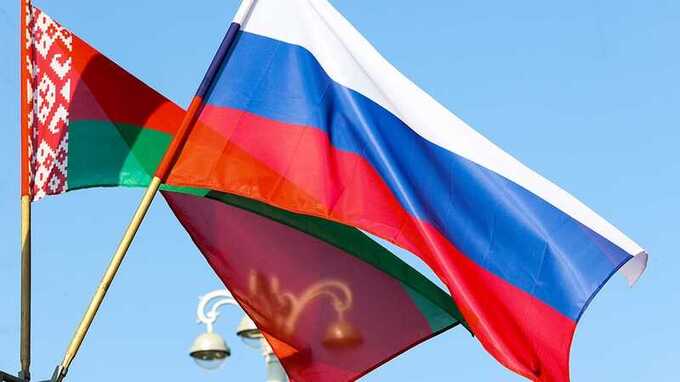Russian investor billed Lukashenka in dollars for Eurobonds
This is the first trial in Russia due to the lack of payments on Belarusian Eurobonds.
On August 28, the Moscow City Court began considering the merits of the first lawsuit on Eurobonds of Belarus: Russian investor Alexander Marchenko applied to the country’s Ministry of Finance with a demand to recover about $300,000 of the face value of the bonds, along with coupons. He stopped receiving payments on Belarusian Eurobonds since the spring of last year. He decided to go to court based on the experience of other investors who met the necessary conditions for receiving payments in Belarusian rubles, but they did not receive the money, he said during the meeting.
During the meeting, representatives of the Ministry of Finance of Belarus doubted that the Russian court was competent to consider the claim. In support of their arguments, they noted that since June 28, 2023, the Chisinau Convention on Legal Assistance in Relations with Belarus has been in force for Russia. This international treaty establishes that the courts at the location of the defendant or at the place of activity of his body (representative office) are competent, lawyers argued. They also insisted that such disputes should be resolved in the London Court of Arbitration (LCIA).
The defense of the Belarusian Ministry of Finance filed motions to terminate the proceedings or leave it without consideration. Lawyers also insisted that Marchenko incorrectly chose Belarus as a defendant, since the obligations under the bonds are being fulfilled on her part. Referring to the issuing documentation on Eurobonds, they argue that Belarus has no obligation to bring funds to the ultimate bond holder. The issuer does not even keep records of the ultimate holders of these securities: the payment agent, which in the case of Marchenko is the London branch of Citibank, is responsible for bringing the funds through brokers, the lawyers argued.
The court adjourned until September 6
The jurisdiction of the dispute to the Russian court is beyond doubt, given that the plaintiffs are located in Russia and purchased the papers here, Yuri Fedyukin, managing partner of the law firm Enterprise Legal Solutions, estimates. Therefore, he is “skeptical” of the reference of the defense of Belarus to the arbitration clause that the claim should be considered by the LCIA. If the reservation, he explains, follows from the issue agreement between the issuer and the placement organizers (underwriters), then it should apply only to disputes between these persons during the initial placement of securities. Underwriters of Belarusian bonds are Citi and the Austrian Raiffeisen Bank.
Fedyukin states that technically Belarus fulfills its obligations by paying income to holders of securities in local rubles. Despite this, he assesses as fairly high the chances of investors to satisfy their claims by the Russian court, since the issuer “obviously” significantly changed the conditions for paying income, moreover, unilaterally.
The first problems with receiving payments from holders of Belarusian securities began in February 2022, and massive problems a year later. The country’s authorities first referred to sanctions and restrictions from clearing systems that prevent payments in dollars. But in the summer of 2022, they determined a temporary procedure for making payments on Eurobonds: following the example of Russia, it was decided to pay in Belarusian rubles at the official rate to accounts in the state-owned Belarusbank. In February 2023, the Belarusian Ministry of Finance reported on the redemption of Eurobonds for $800 million on February 28, also paying a coupon on them for $27.5 million – all in terms of Belarusian rubles. At the same time, the department paid out income on three more issues for $57.2 million. But the funds did not reach Russian holders, Vedomosti wrote. The Bank of Russia is also aware of the problem.
The volume of Belarusian Eurobonds held by Russian investors is not known, but Alexander Berkunov, board member of the Bondholders Association (ABO), estimates it at no less than $500 million. “Russian investors have traditionally been the main buyers of Belarusian debt,” he explains. In circulation, according to Rusbonds, there are four issues of Belarusian Eurobonds worth $2.45 billion maturing in 2026–2031. and coupon yield in the range of 5.8–7.6% per annum. In February 2023, the Ministry of Finance of Belarus redeemed another issue of Eurobonds in the amount of $800 million in local rubles to an account in Belarusbank.
After the introduction of the payment mechanism in Belarusian rubles instead of dollars, a new test for investors was the receipt of this money from special accounts in Belarus. To do this, the creditor must independently open an account with a local bank and then submit to Belarusbank a package of documents confirming the basis for transferring the money due to him (an extract from a depo account in his depository, etc.). After that, Belarusbank, in agreement with the Ministry of Finance, transfers funds, and the obligations are recognized as duly fulfilled. In addition to payments in rubles, the Belarusian authorities provided for the possibility of fulfilling obligations on Eurobonds “on an alternative basis”, but only with the consent of the owners of the securities: by their early redemption, replacement with “clones” placed on the domestic market, or otherwise (which is not specified) .
The dollar exchange rate against the ruble during this time decreased by 0.1% (10 kopecks) to 95.3 rubles, the euro rose by 0.1% (10 kopecks) to 103.1 rubles, and the yuan changed, amounting to 13.05 rublesGrowth leaders on Monday were the papers of Globaltrans (+4.67%), Moscow Stock Exchange (+4.38%), Norilsk Nickel (+3.59%), Sberbank (+2.5%) and NLMK (+2.46%). PIK papers were outsiders (-0.18%)
The price of the October futures for Brent crude did not change on Monday, amounting to $84.4 per barrel. October futures for WTI oil rose 0.4% to $80.1/bbl.
The Russian stock market looked positive on Monday, the Moscow Exchange index stormed the line of 3200 points, says Alexander Bakhtin, an investment strategist at BCS World of Investments. A favorable start to the week was due to the relative weakness of the ruble, the holding of Brent quotes near $85/bbl. and improving the external background, the expert believes. His forecast for the Moscow Exchange index on August 29 is 3105-3225 points. On Tuesday, TCS Group, AFK Sistema, Polyus, RusHydro, Samolet and Segezha will present their financial statements.
The external background on August 28 was restrainedly positive, Bakhtin continues: Chinese stock exchanges traded in positive territory, the European Euro Stoxx 50 index turned green as well. agreed on the need to maintain high interest rates until inflation is brought to the targets of regulators, the strategist notes. The ruble started Monday weakly, falling to 95.9 rubles/$, but then won back the decline and even went into a moderate plus. Probably, against the backdrop of additional sales of foreign currency, which the authorities agreed with exporters, the tax period factor had a less significant impact than in previous months, Bakhtin says. In addition, oil prices are consistently above $80 per barrel of Brent, the analyst adds. His forecast for the dollar on Tuesday is 93–96 rubles/$.
Recently, a Russian investor told an ABO representative that he was able to receive a coupon payment on Belarusian Eurobonds in early December 2022, says Berkunov. So far, no such cases have been reported. On the contrary, investors regularly complain that this scheme does not work: the number of subscribers of the thematic Telegram channel exceeds 600 people.
The authorities of Belarus, obviously, do not see any damage for themselves from delaying payments, therefore, they have not yet developed a workable mechanism for their implementation, Berkunov believes. AVO expects that the issue will be really resolved after the next meeting of the high-level group of the Council of Ministers of the Union State. It is scheduled for the III quarter of 2023, according to the website of the Ministry of Economic Development of Russia.
“We know that the Belarusian side is working on changing national legislation in order to develop a mechanism for transferring payments on Eurobonds to holders whose rights are taken into account by Russian depositories,” Elvira Nabiullina, head of the Russian Central Bank, said in June. Then she added that the Central Bank is consulting with the Ministry of Finance of Belarus on this situation.











